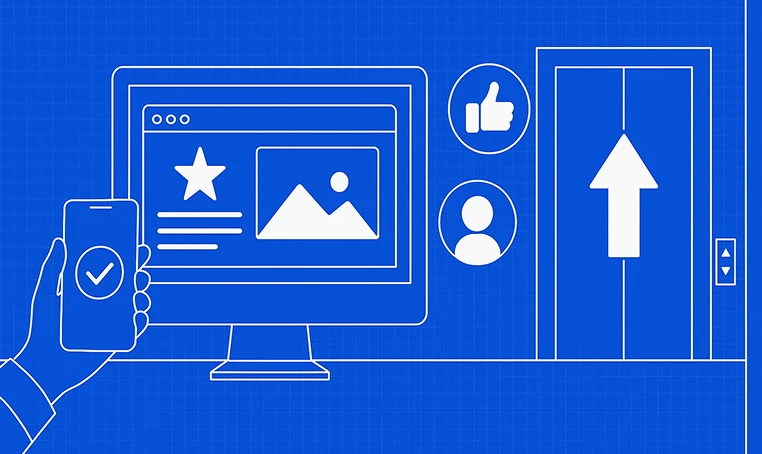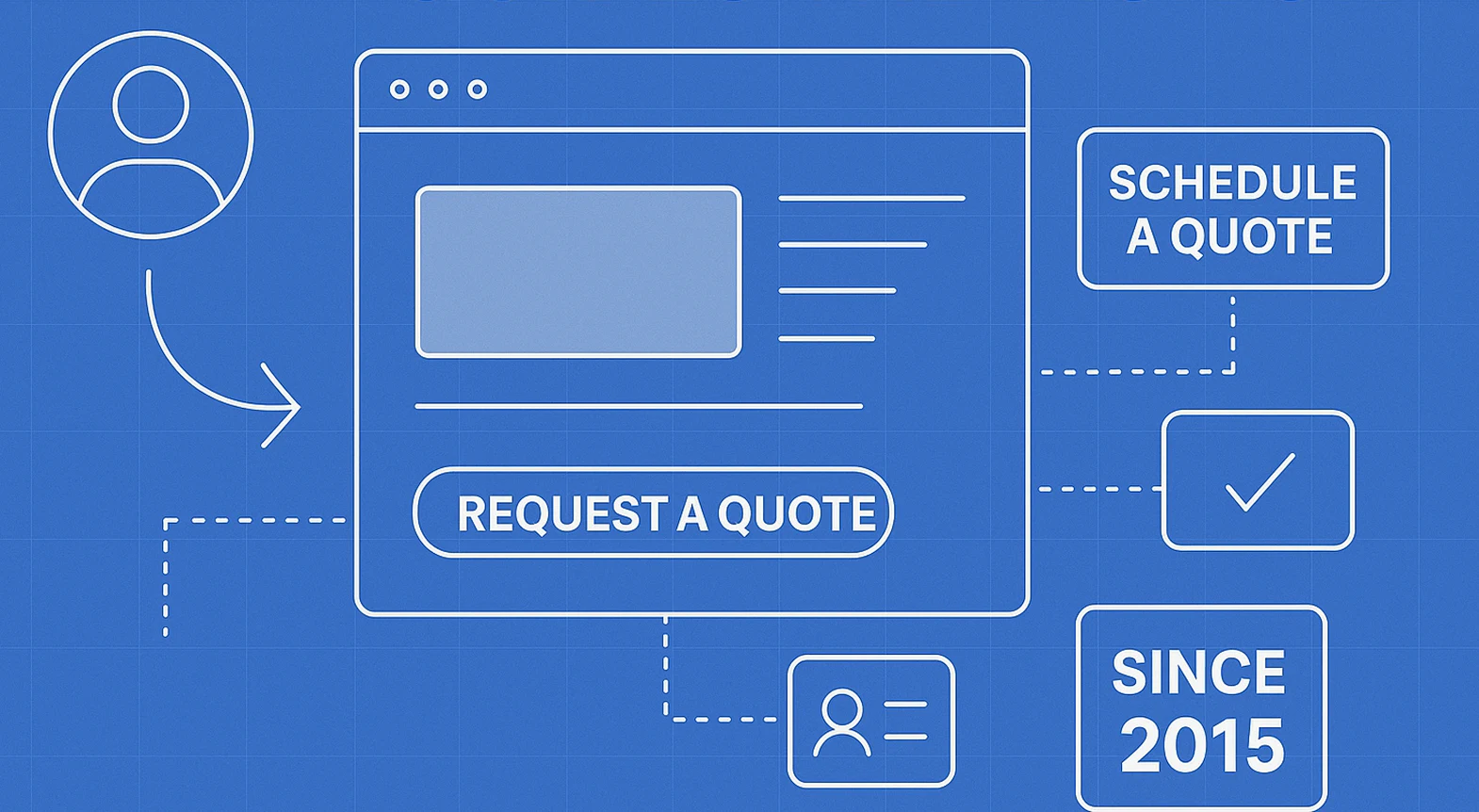Don’t Let An Outdated Website
Hold Back Your Growth
Work With Someone Who Knows Elevator Industry And
Understands How To Build Websites That Generate Results
Avoid These Lead-Killing Website Flaws

Most elevator contractors have a website. But here’s the real question, does it actually do anything?
Too many sites look decent… but don’t convert. They sit there, collecting dust while better looking, clearer, more trustworthy competitors get the calls.
A great website isn’t just about looking modern. It’s a quiet sales tool — something that works in the background to make your business look more legit, more professional, and more worth hiring.
So what separates a good site from one that gets real results?
Let’s break it down.
We’ve seen it all: “Rising to the Occasion.” “Lifting Standards Since 1999.” “Vertical Mobility Experts.”
That’s nice. But it doesn’t help someone figure out what you do, where you work, or whether they should call you.
The best elevator websites lead with plain-English clarity. They answer the three core questions your visitors have:
You’ve got about 5 seconds to answer those questions before someone hits the back button.
This doesn’t mean your homepage has to be dull. It just needs to communicate like a real human, not a marketing brochure. For example:
“Commercial & Residential Elevator Installation and Maintenance – Serving Atlanta, GA & Surrounding Areas.”
Follow that with a brief subheading, a bold CTA, and maybe a client testimonial or quick stat like “Over 1,200+ Elevators Serviced Since 2015.”
Now you’re speaking their language.

Picture this: You do modern, high-end work. New installs, cab mods, controllermods. Your team shows up on time, your work is tight, and your quotes are fair.
But your website looks like it was built in 2011.
Fair or not, that’s how people judge you.
A strong website doesn’t just look good. It reflects the level of professionalism you already bring to the job.
Think of it this way: if a home owner or building owner is looking at three vendors and two of them have modern, trustworthy websites… who do you think gets the callback?
If you’re unsure how your site is being perceived, take a look at our FAQ page — we walk through how your site’s design affects trust, even if everything else is done right.
And yes, modern design doesn’t mean animations and video loops. It means layout, spacing, easy-to-read type, and logical navigation. These elements matter more than any flashy trend.
Don’t Just Tell — Show. Every elevator company says the same thing:
“We’re reliable. We’ve been doing this for years.”
But trust comes from evidence, not claims. Here’s what we see working best:
And if you really want to stand out, consider including mini case studies or before-and-after visuals. Showing how you solved a specific client’s elevator issue adds real credibility.
According to BrightLocal’s 2024 Consumer Review Survey, 87% of consumers used Google to evaluate local businesses in the past year — and people are 2–3x more likely to trust businesses that show real customer results.
If you’re not sure whether your current site builds trust or just exists, it’s worth getting an outside perspective. Sometimes the fix is easier than you think.
You’d be shocked how many elevator contractor sites look solid but leave the visitor hanging.
No clear next step. No visible phone number. A form with 17 fields. A CTA that just says “Submit.”
Your website should behave like a clear, confident salesperson. One who says, “Here’s what we do, here’s why it works, and here’s how to get started.”
That means:
“Request a Quote” → near the top
“Schedule a Site Visit” → after project photos
“Call Now” → visible at all times on mobile
These CTAs should be visible, repeatable, and specific.

Speed, Mobile, and Invisible Trust
Even if your content and design are strong, poor technical performance can kill your conversions. Slow load times, broken mobile layout, or a clunky contact form tells visitors:
“This company isn’t very detail-oriented.”
That might be totally false but that’s what your website is silently saying. Use free tools like GTmetrix or Pingdom Speed Test to test performance. You’re aiming for:
You can also reach out via our Contact Page — we’ll run a basic check for you.
Generic doesn’t build trust.
You’ve seen those websites — the ones that look like they came from a drag-and-drop builder. Same fonts. Same layout. Same vague “About Us” text that could belong to any company in any industry.
The best elevator websites are personal. They reflect the voice of the owner. They include real project photos. They mention the types of jobs you specialize in (e.g. modernization, repair, maintenance). They speak directly to the type of client you want. And they do it all without sounding robotic.
If you’re not sure where to begin, see how we build industry-specific messaging into every design we ship.

A great elevator contractor website doesn’t need to be flashy. But it does need to work.
That starts with clarity. Your site should immediately tell people what you do, where you work, and how they can get in touch. It should feel professional and modern — not over-designed, just clean and trustworthy. Design matters because it shapes first impressions, and in many cases, your website is the first touchpoint with a potential client.
But that’s just the surface. Behind the scenes, your site should be fast, mobile-friendly, and easy to navigate. And every page should have a purpose, guiding people toward the next step; whether that’s booking a consultation, requesting a quote, or just picking up the phone.
Most of all, it should feel like you. The language, the visuals, the content. Everything should reflect the quality and personality of your business. That’s what builds trust before you even speak to a lead.
If you’re ready to turn your website into something that actually brings in jobs, explore our Elevator Website Design process and see how we help contractors make the right impression online.
Work With Someone Who Knows Elevator Industry And
Understands How To Build Websites That Generate Results